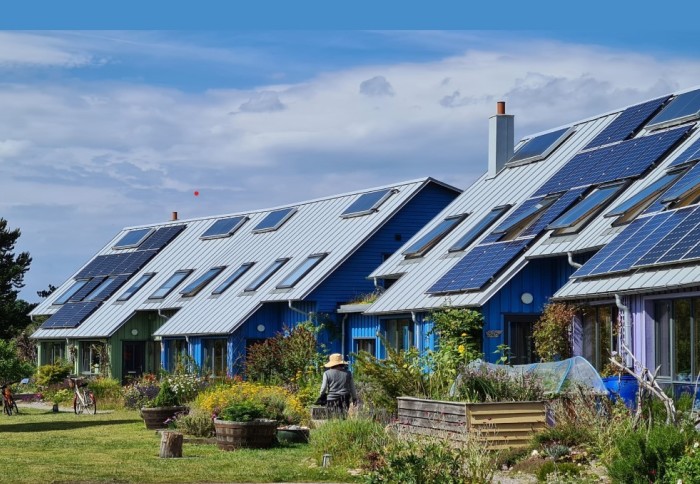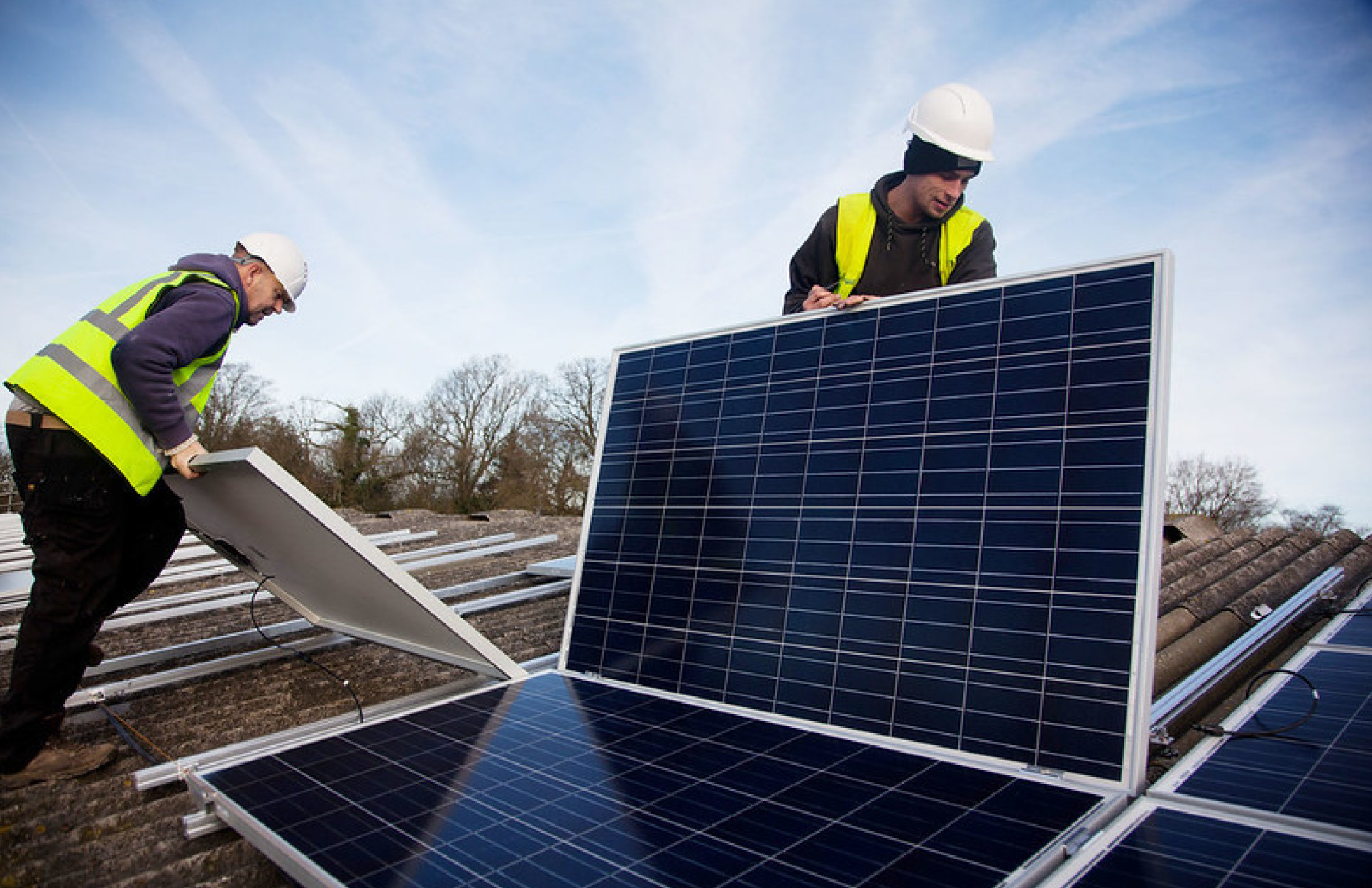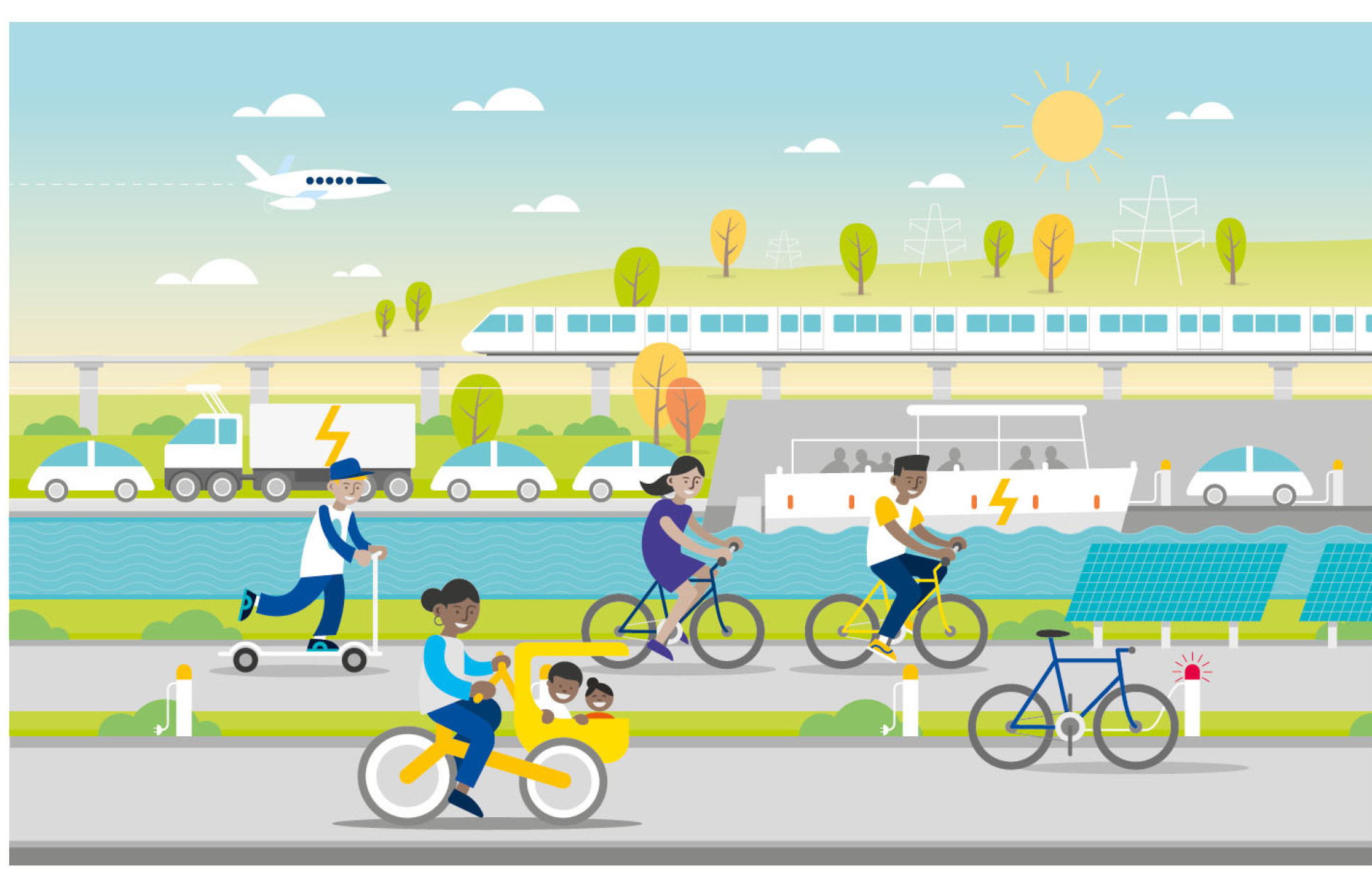Climate report: "It's now or never, if we want to limit global warming to 1.5°C"

Cover image of the IPCC WGIII 6th Assessment Report
The window to stop dangerous climate change is closing, but solutions to slash emissions in the next decade are here now, say IPCC experts.
The UN Intergovernmental Panel on Climate Change (IPCC)’s latest Working Group lll Sixth Assessment Report, Climate Change 2022: Mitigation of Climate Change, focuses on solutions to climate change – what can be done to stop emissions rising.
It shows that levels of greenhouse gas emissions are now the highest they have ever been and that, without deep and immediate cuts in emissions, limiting global warming to 1.5°C – as agreed in the Paris Agreement – will be beyond reach.
Imperial's Professor Jim Skea is Co-Chair of Working Group III, the group of 278 authors responsible for the report. "It’s now or never, if we want to limit global warming to 1.5°C," he said. "Without immediate and deep emissions reductions across all sectors, it will be impossible."
Current policies implemented to tackle climate change put the world on course for 3.2°C of warming, which would be devastating for people and ecosystems across the world.
"The latest report from the IPCC shows that, while we’ve made progress towards climate goals, there is still a huge gap between current action and the actions needed to limit warming to below more damaging levels," said Dr Robin Lamboll, Research Associate at Imperial’s Centre for Environmental Policy.
However, the report makes clear that technological, financial and governance tools to cut emissions in all sectors already exist, and many of these options are now cheaper and more feasible than ever – and can improve people's health and quality of life all over the world.
Climate action is a good investment

The report highlighted that the costs of solar energy and lithium-ion batteries have fallen by up to 85% in the past decade, and the cost of wind energy up to 55%, due to policies supporting innovation and enabling wider roll-out of the solutions.
For Michael Wilkins, Executive Director and Professor of Practice at Imperial’s Centre for Climate Finance and Investment, these falling costs demonstrate that, "with the right policy incentives and economic frameworks, climate change mitigation can be financed at scale and relatively quickly".
Dr Ajay Gambhir, Senior Research Fellow at Imperial’s Grantham Institute, echoed this, emphasising that, "the falling cost of low-carbon technologies like renewables and electric vehicles will help us to decarbonise at low costs – just a few percentage points of our GDP by 2050".
Dr Alex Köberle, Advanced Research Fellow at the Grantham Institute and contributing author to the report, further emphasised that, "these GDP losses of ‘a few percent’ are only telling half the story, since they do not account for the main benefit of mitigation action, that is, the avoided damages from climate change and lower adaptation costs", which could be very high.
Ambitious action on climate change also reduces the risk of triggering social and environmental tipping points at higher temperatures of 2°C and above, which would result in irreversible impacts. Furthermore, these costs do not account for the significant co-benefits that tackling climate change brings for health and wellbeing.
"The IPCC report not only shows that a lower-carbon future is technically and economically feasible, but that it is also a future to aspire to – with cleaner air, homes that everyone can afford to heat and greater energy security," said Dr Neil Jennings, Partnership Development Manager at the Grantham Institute.

Richard Green, Professor of Sustainable Energy Business at Imperial, also highlighted the economic case for urgent climate action. He said: "The report shows that early action is better for the economy than waiting before cutting emissions, and that while some of the things we need to do will be expensive, other options for cutting emissions will actually save us money – in the way that the most recent UK renewables are cheaper than the price of gas-fired electricity."
Leaving fossil fuels in the ground
In contrast to the ambiguous wording on ‘phasing down’ fossil fuels in the Glasgow Pact after the UN Climate Summit (COP26) last November, the latest IPCC report calls for "a substantial reduction in fossil fuel use", said Krista Halttunen, Research Postgraduate on the Science and Solutions for a Changing Planet Doctoral Training Partnership.
"Today, there is still more financing for fossil fuels than climate change adaptation and mitigation globally," explained Krista, whose research focuses on the future of fossil fuels in the low-carbon energy transition.
"Emissions from existing and planned fossil fuel infrastructure today are already enough to take the world beyond 1.5°C of warming. This means that, to meet the Paris Agreement climate goals, many existing fossil fuel power stations need to be retired early or supplied with emission-reducing technologies," she added.
Creating change in transport

Emissions in the global transport sector are still growing by about 2% each year. To reduce these, the IPCC proposes reducing demand for transport by encouraging a shift to more walking, cycling and public transport, as well as re-designing cities to support a move away from cars.
Imperial’s Dr Drew Pearce, co-author of Research Pathways for Net Zero Transport, said: "Active transport, public transport and demand reduction are policy ‘slam dunks’: saving us money and emissions as well as leading to a slew of other health and wellbeing co-benefits".
He continued: "Cities and towns will play a crucial role in creating change through the whole supply chain. This too aligns with our recent work, still in review, which shows that significant modal shifts away from private cars are needed at a city-level and that there are significant emissions impacts outside of the city in the wider supply chain."
Zero-carbon buildings

To reduce emissions in the building sector, the IPCC emphasises the need to increase energy efficiency and switch to electric solutions for heating powered by renewables. Ambitious schemes for retrofitting buildings can also improve wellbeing as well as help people to cope with the impacts of climate change, such as flooding or overheating.
Dr Richard Hanna, Research Associate at Imperial’s Centre for Environmental Policy, said: "Reducing emissions from energy use in buildings is an urgent priority… The current decade is critical for developing the required skills and supply chains. Policy packages to improve buildings' energy efficiency and replace high carbon heating with renewable heating need to be sufficiently ambitious, well-designed and effectively implemented."
"I’m glad to see the acknowledgement that energy efficiency policies can contribute to 42% of the decarbonisation of the global building stock, with particular mention in the report of the skills and supply chains required to achieve this," added Dr Kate Simpson, Research Associate in Housing Adaptation and Retrofit at Imperial’s School of Design Engineering.
The role of carbon dioxide removal
This is the first IPCC Assessment Report that explores the full spectrum of carbon dioxide removal (CDR) approaches, and the opportunities, challenges and risks it poses. CDR involves taking carbon out of the atmosphere by, for example, planting trees or sucking carbon out of the air with machines and storing it underground.
"It might sound crazy to talk about carbon removal when we are still putting it up there at record rates. But the reality is that, if we're serious about pursuing a robust and affordable set of actions to get to net zero by 2050, then carbon removal is in the mix. And that means starting now," said Dr Steve Smith, Executive Director at CO2RE and Visiting Researcher at the Grantham Institute.
However, Dr Smith emphasised the importance of reducing emissions at source across all sectors as the first and most urgent step, rather than relying on CDR: "With carbon removal getting lots of the headlines, it's crucial to remember we won't stop climate change without all the other stuff in the IPCC report: cutting energy waste, cutting fossil fuels if the carbon isn't captured and stored, better diets, and not cutting down forests," he said.
The power of behaviour change
For the first time in an IPCC assessment report, there is a whole chapter dedicated to the role that behaviour change can play in bringing down emissions. The report shows that policies to reduce demand could cut emissions by 40-70% by 2050.
"Behavioural and lifestyle changes can reduce our emissions considerably, as will action in cities and other urban areas; and there are huge co-benefits to climate action, including to our health and wellbeing," said Dr Ajay Gambhir.
"This is all encouraging, and means we have no excuse not to make immediate, sustained and deep reductions to our emissions, towards net-zero carbon dioxide in the early 2050s."
Demand-side changes include encouraging people to switch to more sustainable diets, shifts to walking, cycling and more public transport, reducing waste and using products for longer.
Find out more about how individuals can take action on climate change in our online feature.
Article supporters
Article text (excluding photos or graphics) © Imperial College London.
Photos and graphics subject to third party copyright used with permission or © Imperial College London.
Reporter
Lottie Butler
The Grantham Institute for Climate Change
Siobhan Stack-Maddox
Human Resources Division
Nicole Kuchapski
The Grantham Institute for Climate Change
Katrine Petersen
The Grantham Institute for Climate Change
Hana Amer
Business School